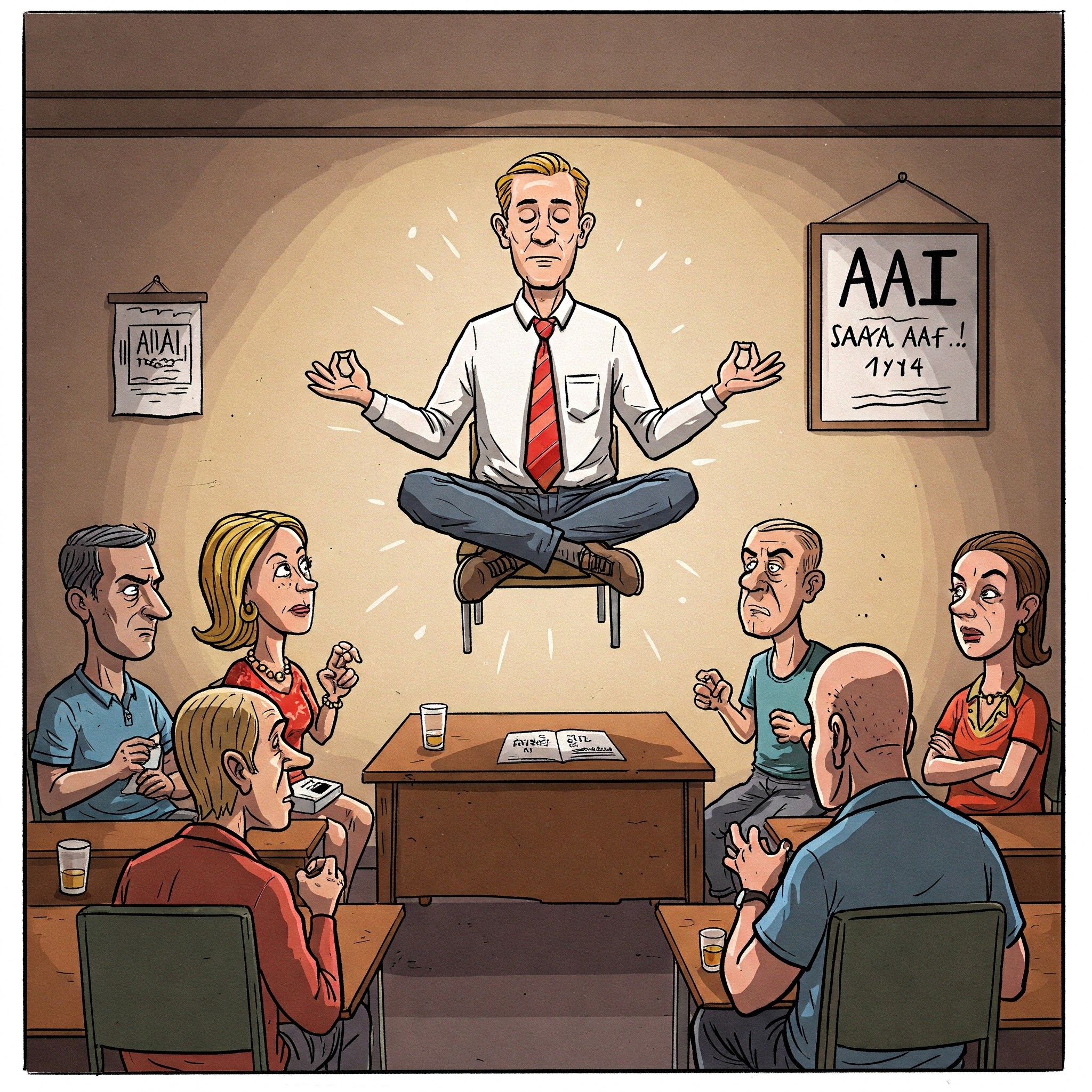Do you have someone in your life who just can’t stop drinking, no matter how many times they swear it off?
Me too.
What I want to share here isn’t theory—it’s lived experience, backed by what’s written in the Big Book of AA. I’ve been able to maintain long term sobriety, over 30 years, after countless attempts to quit and remain abstinent.
Alcoholism, as described in AA, isn’t just about drinking too much. It’s a threefold illness: it affects the body, the mind, and the spirit. If you’re trying to understand a loved one—or yourself—this breakdown might help.
1. The Spiritual Malady (The Inner Agitation)
Before the first drink is ever taken, something is already off. Alcoholics often live with a kind of low-level misery—restless, irritable, and discontent (p. xxviii). We don’t feel right in our own skin. We’re driven by fear, anger, self-pity, and resentment. It’s that internal discomfort that sets the stage for everything else.
On page 52, this condition is described through what are often called the “bedevilments”:
“We were having trouble with personal relationships, we couldn’t control our emotional natures, we were prey to misery and depression…”
Sound familiar?
This is what AA calls the spiritual malady—not in a religious sense, but in the sense that something deep inside is broken. And when that discomfort gets strong enough, the alcoholic’s mind starts searching for relief.
2. The Mental Obsession (The Lie We Believe)
When we’re dry—but not recovered—we eventually hit a wall. The mind starts whispering things like:
- “It wasn’t that bad.”
- “I’ll just have one.”
- “I’ve got this under control now.”
This is the mental obsession the Big Book talks about on pages 23–24:
“The main problem of the alcoholic centers in his mind rather than in his body.”
“The idea that somehow, someday he will control and enjoy his drinking is the great obsession of every abnormal drinker.”
This obsession overrides reason, memory, and even experience. We convince ourselves that taking the first drink will be okay—even when we know deep down how it usually ends.
3. The Physical Craving (The Switch Flips)
Once we take that first drink, we trigger what Dr. Silkworth calls the “phenomenon of craving.” You’ll find this in The Doctor’s Opinion, on pages xxviii–xxx:
“The phenomenon of craving is limited to this class and never occurs in the average temperate drinker.”
In other words, normal drinkers don’t feel this. Alcoholics do. It’s like flipping a switch—we go from “just one” to “whoops, here we go again.” We don’t drink to get drunk—we drink to feel okay. But it never stops at just one.
4. The Spree (And the Fallout)
That craving turns into a spree. We go off to the races—drinking until we pass out, screw up, or burn something down (figuratively or literally). It ends with consequences: wrecked cars, wrecked marriages, lost jobs, hurt kids, and a mountain of shame.
The Big Book captures this on page 21:
“He is seldom mildly intoxicated. He is always more or less insanely drunk.”
And again on page 57:
“He was on a spree which would end in time with a terrible hangover, the inevitable remorse and hopelessness of the next morning.”
Then we swear it off—never again—until the spiritual agitation returns. And the cycle starts all over.
So What’s the Solution?
Alcoholics Anonymous doesn’t just ask people to stop drinking—it offers a design for living that addresses all three parts of the illness.
- It treats the body by staying away from the first drink.
- It treats the mind through shared experience, honesty, and steps that break the obsession.
- And it treats the spirit through a spiritual awakening—a shift in perspective, connection, and purpose.
AA isn’t magic, but it is a simple program for complicated people. And it works—when we work it.
Disclaimer:
The thoughts and experiences shared in this post are my own. While I’ve found recovery through Alcoholics Anonymous, I do not speak on behalf of AA as a whole. This is simply one alcoholic’s understanding of the program and how it works in my life.
If this helped you understand someone you love, or maybe even yourself, feel free to share it. If you’ve got questions or want to connect, drop a comment or reach out.


Leave a Reply